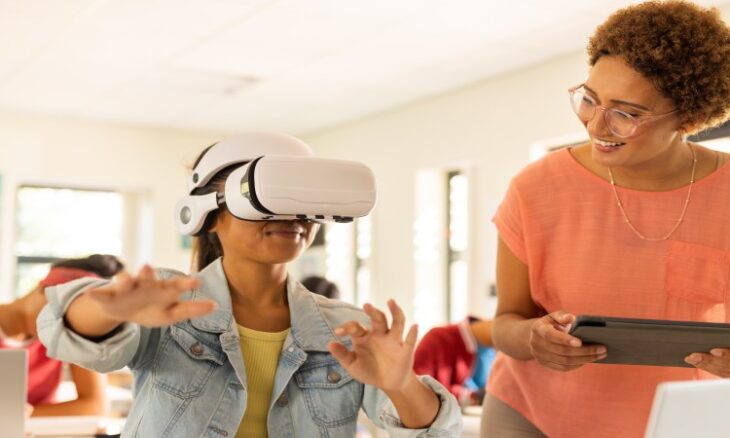Alabama Schools Launch VR Learning Pilot
Five Alabama school districts, including Decatur City Schools, have been selected to pilot a new state-funded virtual reality (VR) learning initiative designed to connect classroom lessons with real-world career experiences. The programme, backed by the Legislature, introduces immersive technology to help students in middle and high school engage more deeply with core academic concepts.
Decatur City Schools was one of the few systems chosen to participate in the project, which will focus primarily on pupils from Year 7 to Year 10. During a recent board meeting, members unanimously approved an agreement between the district and Prisms of Reality, the company supplying the VR platform.
The initiative aims to give students practical insight into different professions through an interactive virtual environment. Using VR headsets and handheld controllers, students will spend around 20 to 30 minutes of class time exploring various work settings aligned with subjects such as mathematics and science. The sessions are intended to reinforce classroom learning by allowing students to visualise and experience the principles they study in action.
Through these immersive simulations, students will be exposed to career paths beyond traditional roles such as medicine or teaching. Scenarios could include laboratory technicians, warehouse inventory managers, or other technical fields often overlooked in standard career guidance. The experience is designed to inspire curiosity and broaden awareness of available career opportunities across industries.
Each participating school will receive a headset and charging station from Prisms of Reality, with the contract covering the remainder of the academic year. The only cost to the district during the initial phase will be for headset batteries. Educators will use session data to assess the programme’s effectiveness, particularly in engaging students who may not respond as strongly to traditional teaching methods.
Prisms of Reality operates as a spatial learning platform that uses virtual reality to transform how K-12 students understand mathematical and scientific principles. By allowing learners to engage with abstract ideas physically, the technology bridges the gap between theory and application. Teachers coordinate the sessions using the Prisms Teacher Dashboard, which enables them to monitor progress, review analytics, and adapt lessons in real time. Each student logs in with personal credentials, allowing for individual progress tracking and performance analysis.
Following a demonstration of the technology, members of the Decatur school board expressed optimism about the initiative’s potential. Many noted that the programme aligns with how students naturally engage with digital content and that it could become a vital part of future education. Several board members also highlighted the district’s demographic diversity, emphasising that Decatur’s inclusion in the pilot reflects both its size and its representation of broader student populations across Alabama.
There was also enthusiasm about the programme’s potential to improve conceptual learning. Board members noted that the immersive visuals would likely enhance comprehension for students who benefit from visual explanations. They viewed the initiative as a forward-thinking step that may redefine how schools approach learning across STEM subjects.
The meeting also showcased another technological development in the district: the use of artificial intelligence to streamline administrative processes. The software compiled six months of board meeting minutes into a summary report within minutes, illustrating how automation could improve efficiency in educational settings.
District leaders suggested that similar AI tools could assist students with academic writing. They emphasised that while learners should complete their own assignments, artificial intelligence could be used to refine their work by checking spelling, grammar, and structure, helping them focus on improving clarity and accuracy.
As Alabama’s educational landscape embraces emerging technologies, the Decatur district’s participation in this VR pilot marks an important step towards integrating advanced digital tools in everyday learning. The success of this trial could determine whether virtual reality becomes a fixture in classrooms across the state, offering students a more engaging and interactive way to explore the world of work and academic discovery.










